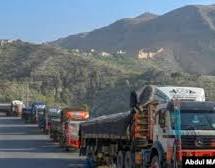Business in Afghanistan
Business in Afghanistan faces many challenges due to the security situation, economic problems, and political developments. However, Afghanistan has potential for business in various sectors. Here is a look at the current state of business in Afghanistan:
-
Economic opportunities and potentials:
• Strategic geographical location: Afghanistan, as the connecting point of Central Asia and South Asia, has an important capacity to become a regional business center. This position can help increase transit trade and exchange of goods between neighboring countries.
• Rich natural resources: Afghanistan has natural resources such as copper, lithium, coal, precious stones and rare metals. Extraction and export of these resources can be a great source of income.
• Agriculture and animal husbandry: agricultural products such as saffron, pistachios, grapes, pomegranates and medicinal plants are among the items that have a good market at the global level and Afghanistan can be more active in these areas. -
Challenges and problems:
• Political insecurity and instability: Political insecurity and instability have a negative impact on Afghanistan’s business and economy and increase investment risk. The lack of trust in economic and political stability makes foreign investors reluctant to enter the Afghan market.
• Lack of infrastructure: Poor infrastructure in the fields of transportation, energy, and communication is one of the main obstacles in the development of business in Afghanistan. Lack of proper roads, unreliable power grids and weakness in the communication sector, trade and transportation of goods pose problems.
• Bureaucracy and corruption: The complex bureaucratic system and the presence of corruption have made business processes slow and costly. Many businessmen and businessmen face many problems in government offices to do their business.
• International sanctions and financial restrictions: Economic sanctions and financial restrictions have severely affected foreign trade, especially after the recent developments in Afghanistan. These sanctions have restricted banks and international payment systems and negatively affected Afghanistan’s trade. -
Trade routes and international agreements:
• Afghanistan has tried to strengthen its trade routes through trade agreements with neighboring countries such as Pakistan, Iran, China and Central Asian countries. Trade corridors such as the Lazord Corridor (which connects Afghanistan to Europe via Turkmenistan, Azerbaijan and Georgia) are also considered as an important route for exports and imports. -
Future perspective:
• If Afghanistan can improve its infrastructure and provide more security, the country has great potential for business growth. Creating transparency, reducing administrative corruption, and attracting foreign investment can also help Afghanistan’s business development.
